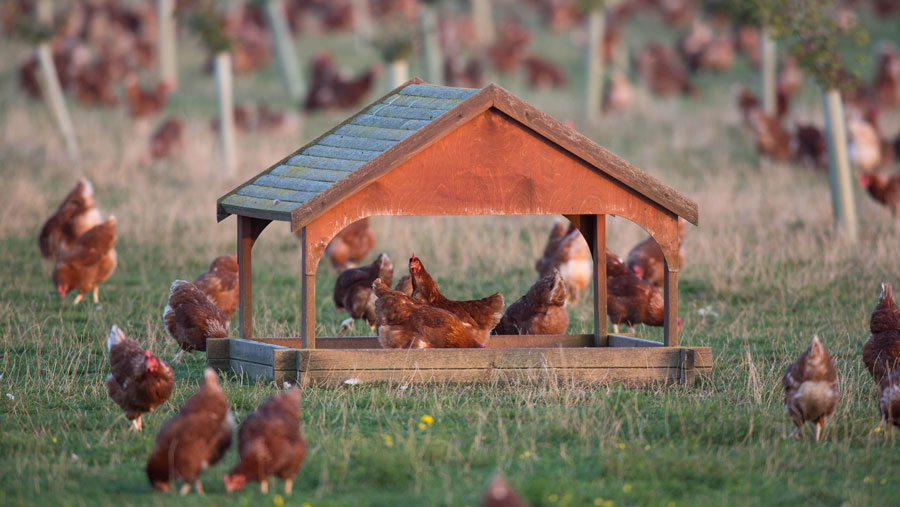Avian influenza prevention zone lifted, but risk remains
 © Tim Scrivener
© Tim Scrivener Avian flu restrictions that have controlled operations on all British poultry farms for the past nine months have been lifted after the UK government classified the virus risk as “low”.
The mandatory avian influenza prevention zone (AIPZ) order, which has been in place since November 2021, was removed at midday on Tuesday (16 August).
See also: Avian flu hits four poultry flocks in five days
It means that flock keepers no longer have to follow rules that required them to contain free-ranging birds in fenced areas and to fence off ponds, watercourses and permanent standing water.
These enhanced biosecurity measures were brought in when there was a “medium” risk of the virus for some poultry premises, and included a housing order, but this was lifted in May.
The removal of all restrictions comes after the UK’s largest-yet outbreak of avian influenza, with 130 confirmed cases in the UK since late October.
Localised
But even while the UK government says the risk is low, cases are still being detected on poultry farms in the South West of England. Last week there were four cases in five days among Devon flocks – two on commercial-scale duck and quail egg farms, and two in backyard flocks.
UK chief veterinary officer Christine Middlemiss said that with those localised areas of risk, flock keepers should still follow the highest standards of biosecurity and cleanliness.
But statutory measures, such as the continuous cleansing and disinfection of housing and keeping fresh disinfectant at all farm and building entry points, no longer apply.
However, a ban remains on poultry gatherings, including at fairs, shows and markets, because of concern of infection spread.
Caution
The industry has welcomed the lifting of the restrictions, but remains cautious.
NFU poultry board chairman James Mottershead said the government’s announcement had come as a relief to poultry farmers, but urged flock keepers to remain in a heightened state of alert.
“While the threat of avian influenza to poultry has reduced, outbreaks may still occur and it’s incredibly important that everyone who keeps birds remains vigilant and continues to practice good biosecurity measures at all times.
Robert Gooch, chief executive of the British Free Range Egg Producers Association, said sporadic cases of avian influenza were still appearing, so the whole sector must remain vigilant.
Mr Gooch said the reason the prevention zone had been in place for so long was down to the virus itself.
“This H5N1 type is the most potent and durable virus we have yet seen,” Mr Gooch said. “The hot weather would normally have wiped out the virus months ago, but this particular one has persisted.”
